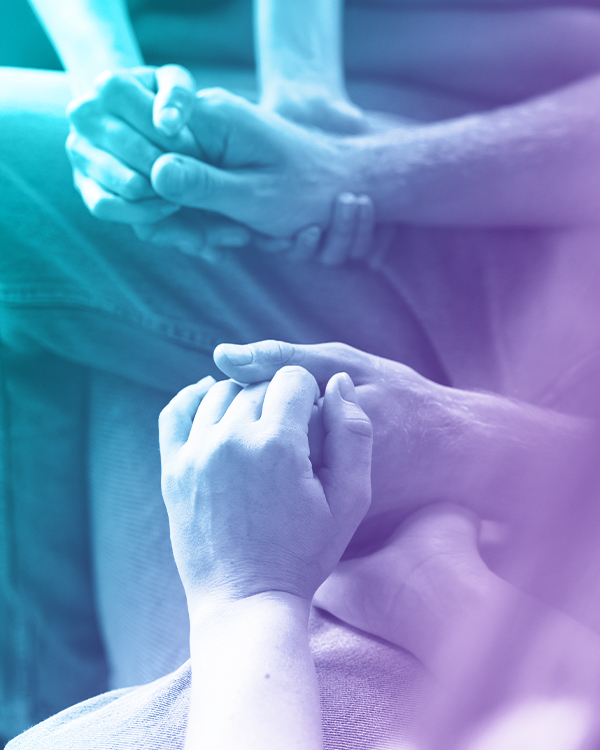Heroin Overdose
When it comes to an overdose, a number of scenarios are possible. Say you are an avid heroin user – always careful with your needles, never taking too much at once, and always using it with other people around. You have been doing this for years and never had an issue – until today. You and your friends were unknowingly sold a batch of heroin with fentanyl mixed into it. Your friends and yourself take your usual amount and enjoy the effects as you drift in and out of consciousness. But unfortunately, none of you wake the next day.

Or perhaps you don’t have a preference for a certain substance and you’re just using whatever is available at the time. Different parties bring different substances, and you haven’t had the chance to try heroin yet. This particular evening, your buddy brings a bag and asks if you are up for trying it. You’ve done everything else so why not? He uses heroin all the time and draws up a round for you. It’s like nothing you have ever felt, and you are instantly relaxed. The night becomes a blur and you keep nodding in and out. Next thing you know, you wake up in a hospital bed. Your buddy lets you know that you overdosed and had to be revived. How did that happen?
In Hillsborough County, Florida, 634 fatal overdoses were reported in 2022. It is now the number one cause of death, more than car accidents and homicides. Clean Recovery Centers is working with the public to bring attention to this matter and provide resources. What causes these fatal heroin overdoses? Let’s explore further and learn more.
What Is Heroin Withdrawal?
First, what is heroin? Heroin is classified as an opioid, made from morphine. Morphine is a natural substance made from the opium poppy plant. The difference is, morphine is FDA-approved and is prescribed by a doctor, while heroin is man-made with no regulations. It is not possible to get heroin through a prescription and therefore it can be different every time you use it. Heroin can come in forms such as white or brown powder. It can also come in a black, tar-like texture. Heroin can be sniffed, injected, or smoked.
Withdrawal happens because the body “gets used to” having heroin in the system. When there is a lack of heroin within the body, the brain, muscles, and digestive system will be most affected. This is why prolonged heroin use can become dangerous – the body begins to need the substance in order to function.
What Is a Heroin Overdose?
Understanding what heroin is can help with understanding how an overdose works. Heroin is a depressant, which works in the brain to suppress the central nervous system. This system controls the regulation of things such as breathing and heart rate. When this system slows, everything it controls slows as well.
The body can only handle so much of certain substances at a time. We know this to be true about things like alcohol, which can cause vomiting and loss of consciousness when too much is consumed. The same goes for heroin. The central nervous system slows to the point that the body can no longer function properly. Breathing is the number one function that is affected by a heroin overdose, leading to coma and possibly becoming fatal.
Early Warning Signs of a Potential Heroin Overdose
Early warning signs of a potential heroin overdose can indicate a possible concern. If the person taking heroin seems to be affected quicker or more than usual, there is a chance that the heroin contains another substance such as fentanyl. Fentanyl raises the chance of overdose tremendously, as both heroin and fentanyl are opioids.
The first stages of overdose can mimic standard heroin use. Going in and out of consciousness can be experienced in both scenarios. But with an overdose, these bouts may become more frequent and last for longer periods. Confusion and slurred speech accompany the wake spells.
Signs & Symptoms of Heroin Overdose
There are many tell-tale symptoms of a heroin overdose. These include:
- Shallow breathing
- Pinpoint pupils
- Cold or clammy skin
- Bluish tinge to the fingernails and lips
- Coma
Signs that the overdose is becoming life-threatening include gurgling or choking noises and being unresponsive to outside stimuli such as loud noises. It is important to stay with the person and try to keep them awake until help can arrive
Dangers of an Overdose
The ultimate danger of an overdose is always the loss of life. Hypoxia occurs when the body is not getting oxygen due to not breathing. Even if a person is “brought back,” brain, organ, and muscle damage are all possible due to lack of oxygen. Some damage may even be permanent.
In the Event of an Overdose
 In the event of an overdose, always seek medical attention. Even if you have administered Narcan® (naloxone), it is important to still be evaluated by a medical professional. While it can save a life, in some instances further treatment is needed to completely reverse the effects of an overdose.
In the event of an overdose, always seek medical attention. Even if you have administered Narcan® (naloxone), it is important to still be evaluated by a medical professional. While it can save a life, in some instances further treatment is needed to completely reverse the effects of an overdose.
Giving Narcan® (naloxone) to someone will not cause them harm if they are not overdosing. If an overdose is even slightly suspected, administer Narcan® (naloxone) and call for help. It is always better to be safe.
While waiting for medical personnel to arrive, try to keep the person awake. Lay them on their side to prevent choking, especially if they begin to vomit. Always stay with the person until help arrives, and be completely honest with first responders about all substances taken and quantities.
Who Is at Risk of a Heroin Overdose?
Anyone who uses heroin is at risk for an overdose. It does not matter if this is the first time or the five-hundredth time. When too much is taken, an overdose will occur. Heroin is illegal and unregulated, meaning there are no dosing instructions or rules for what it contains.
Risk Factors for Heroin Overdose
- Some risk factors for a heroin overdose include:
- Having an opioid use disorder
- Managing a mental health condition
- Returning to heroin use after stopping for a prolonged period
- Using heroin with other substances such as alcohol or cocaine
- Taking heroin by injection
- Having a health condition such as liver disease, HIV/AIDS, or heart disease
One of the biggest factors in heroin overdose is returning to use after detoxing. Most think that they can return to the same amount they were using before detox, which is untrue and dangerous. The body no longer needs heroin, and overwhelming it with a high dose can result in an overdose.
Understanding the Common Signs of Heroin Overdose
By understanding the common signs of a heroin overdose, you are helping to protect yourself or someone you love from potential harm. Knowing when an overdose is happening can add crucial time to seek medical attention. It can also give Narcan® (naloxone) a chance to be administered sooner to reverse the effects of heroin.
What Are the Treatment Options for Heroin
Clean Recovery Centers has a three-phase program for treatment for addiction to heroin. Our staff of professionals treat heroin withdrawal through our safe and trusted detox, followed by inpatient or outpatient programs to continue to build on the path to recovery.
Heroin Detoxification
The first phase of treatment is called preparation. This includes a 24-hour detoxification period monitored around the clock medically and with emotional support. Detox from heroin can be dangerous as withdrawal symptoms can become fatal. We offer medication-assisted treatment during this time to ensure the safety and well-being of the individual.
Residential / Inpatient Rehab Services
There are two stages to our residential treatment program.
Residential One – This is part of phase one of the treatment program. Individuals are in a 24-hour, 7-days-a-week, live-in environment. Medical support is available if needed, but the main focus is on individual, group, and family therapy. The length of stay in this treatment phase is 3-4 weeks.
Residential Two – This is where the transition to phase two happens. Phase two is the action phase, where individuals confront where the addiction started and prepare themselves for independent recovery. At Clean Recovery Centers, this step is referred to as Day/Night Treatment, or DNT. While most clients choose to live in community housing on-site for this phase, it is not required. The program is a minimum of 30 hours of services per week. The four main focuses of DNT include experiential processes, defense mechanism identification, belief system exploration, and symbolic integration. All of these components are to help transition core beliefs and develop balance to a clean life. This phase of treatment typically lasts 2-3 weeks.
Mental Health Path – For those who have been diagnosed with a mental health condition during phase one, the treatment path can change to accommodate those needs first. Clients go into a residential II setting after detox and receive specific treatment for their diagnosis as well as education and medication management
Outpatient Rehab Services
Phase Three of the treatment process is the maintenance stage. At Clean Recovery Centers, we have two versions of outpatient services, intensive outpatient and outpatient. For intensive outpatient, or IOP, the client can choose to reside in a 24/7 monitored transitional living on-site or at home. The program is 9 hours per week minimum and continues with individual counseling. Outpatient is for those living at home or in sober living off-site and is 2 hours per week. Both services build on the skills learned in inpatient treatment and therapies to
continue on the path to living heroin-free. The length of stay for phase three is around 6-8 weeks.
Seeking help for a heroin use disorder doesn’t have to be scary. One of the main reasons people do not seek treatment is because of heroin withdrawal. Clean Recovery Centers has a medical detox and full treatment program that can help with these uncomfortable symptoms and keep you focused on your recovery. Call us today at (888) 330-2532 to learn more about our unique treatment programs.
FAQs About Heroin Overdose
What happens when you overdose from heroin?
Breathing can slow and stop during a heroin overdose, leading to coma or death.
Can you go into a coma from heroin?
Yes, you can go into a coma from heroin. It is a central nervous system depressant and slows some of the body’s most vital organs.
What is the metabolism of heroin?
Depending on the person, the metabolism of heroin is around 60 to 90 minutes.


